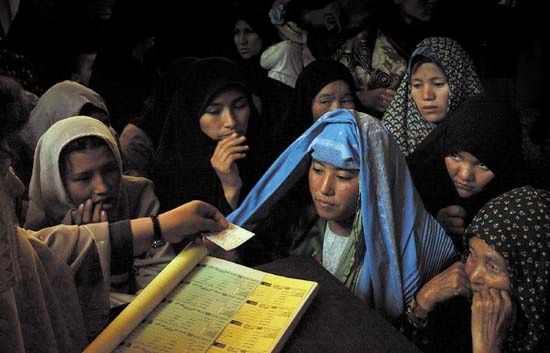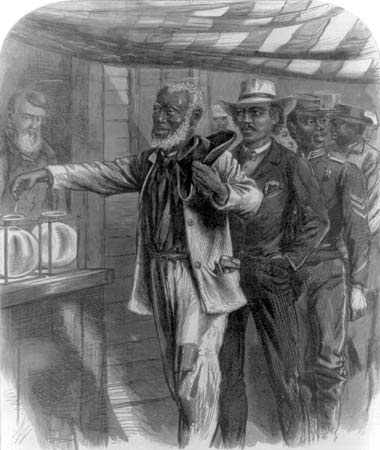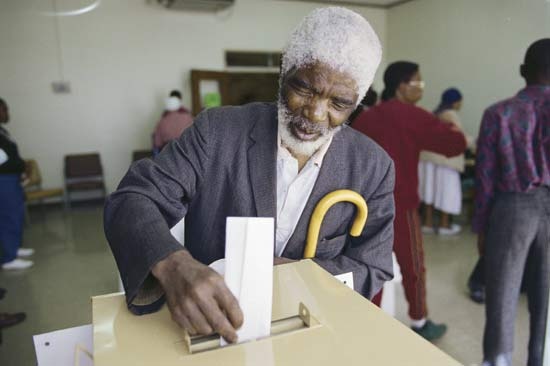suffrage
government
 in representative government, the right to vote in electing public officials and adopting or rejecting proposed legislation.
in representative government, the right to vote in electing public officials and adopting or rejecting proposed legislation.The history of the suffrage, or franchise, is one of gradual extension from limited, privileged groups in society to the entire adult population. Nearly all modern governments have provided for universal adult suffrage. It is regarded as more than a privilege extended by the state to its citizenry; it is rather thought of as an inalienable right that inheres to every adult citizen by virtue of citizenship. In democracies it is the primary means of ensuring that governments are responsible to the governed.
The basic qualifications for suffrage are similar everywhere, although there are minor variations from country to country. Usually only the adult citizens of a country are eligible to vote there, the minimum age varying from 18 to 25 years. Most governments insist also on the voter's affiliation to a certain locality or constituency. The insane, certain classes of convicted criminals, and those punished for certain electoral offenses are generally barred from the suffrage.

 Before the evolution of universal suffrage, most countries required special qualifications of their voters. In 18th- and 19th-century Britain (United Kingdom), for instance, there was a property or income qualification, the argument being that only those who had a stake in the country should be allowed a voice in its public affairs. At one time, only men qualified for the suffrage. Many newly independent countries of Asia and Africa, during the transition from colony to self-government, had a literacy qualification for the suffrage. Some countries limit it to certain racial or ethnic groups. Thus, for example, South Africa, at one time, and the Old South of the United States did not permit their black populations to vote.
Before the evolution of universal suffrage, most countries required special qualifications of their voters. In 18th- and 19th-century Britain (United Kingdom), for instance, there was a property or income qualification, the argument being that only those who had a stake in the country should be allowed a voice in its public affairs. At one time, only men qualified for the suffrage. Many newly independent countries of Asia and Africa, during the transition from colony to self-government, had a literacy qualification for the suffrage. Some countries limit it to certain racial or ethnic groups. Thus, for example, South Africa, at one time, and the Old South of the United States did not permit their black populations to vote.- Wear, River
- Wear Valley
- weasel
- weather
- weather bureau
- weatherfish
- Weatherford
- weather forecasting
- weathering
- weather map
- weather modification
- weather satellite
- weaver
- Weaver, Earl
- weaver-finch
- Weaver, James B
- Weaver, John
- Weaver, River
- Weaver, Robert C.
- Weavers, the
- weaving
- Web 2.0
- Webb, Chick
- Webb, Clement Charles Julian
- Webb, James Edwin